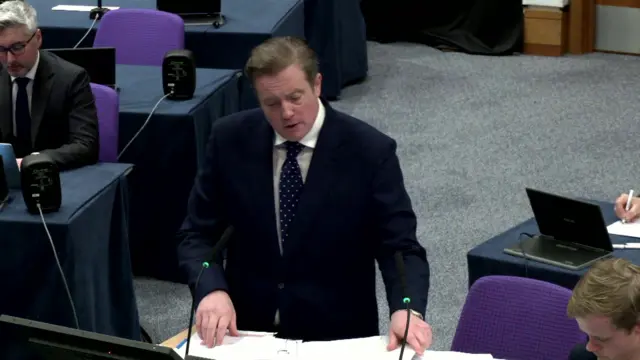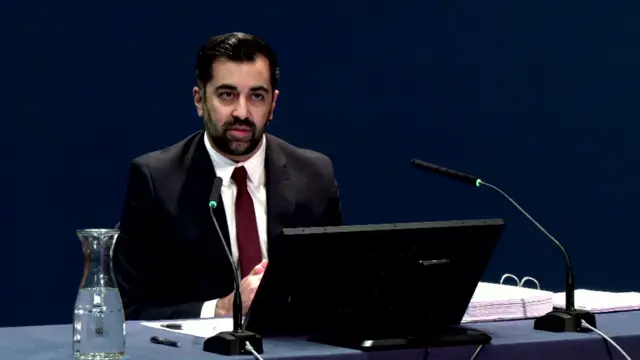'Maximalist approach' to Covid restrictions taken - Yousafpublished at 15:34 GMT 25 January 2024
Humza Yousaf says he associated himself with taking a "maximalist approach" to ensure Covid restrictions were abided by.
The first minister says there was a "real need" to ensure that the public stuck to the rules in order to contain the virus, which at the time was spreading rapidly.
He adds that there was also a greater police allocation to help with enforcement of the restrictions.




